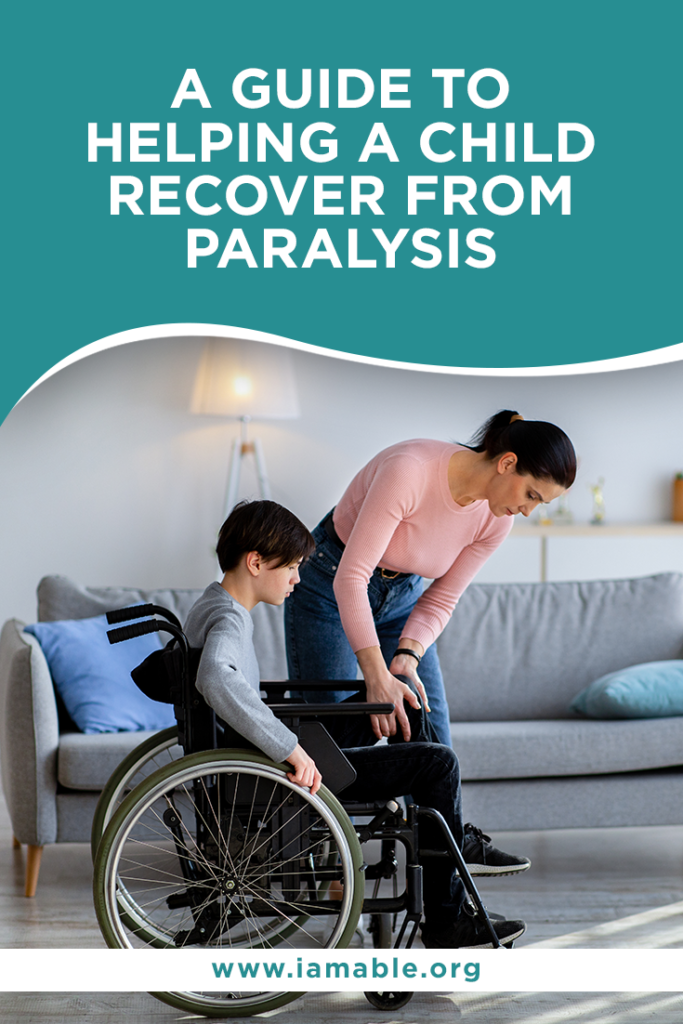Miami, FL 33186

There is nothing better than seeing your child living a happy and healthy life after paralysis. So, we made this blog to guide you in helping your child achieve full paralysis recovery in Miami, Florida.
Various things can cause paralysis in children. For example, paralysis can result from a traumatic brain injury or spinal cord injury caused by accidents. In addition, several conditions can also cause pediatric paralysis, including polio, cerebral palsy, and neurofibromatosis.
Knowing how to provide children with the best form of care while dealing with paralysis can seem intimidating initially. But the best thing about it is that you can walk with your child in every step of their journey towards a complete paralysis recovery in Miami, Florida. Would it be easy? Absolutely not.
To ease the worry and burden in your heart, just remember that you are not alone in facing this huge obstacle. We have compiled a list of 6 steps parents and caregivers can take to help and encourage children while recovering from paralysis and its consequences.
Living with paralysis is difficult, and it can affect one’s ability to do things they love. That is why paralysis can be more challenging for children. Children love to play and enjoy life. And since their disability is blocking them from physically playing with other children, they may feel sadness, frustration, and envy. Children with paralysis may think that they are an outcast. These emotional difficulties may manifest in the form of tantrums.
For this reason, parents of children with paralysis should be more empathizing with their child’s emotions and feelings. To show empathy, you must set aside judgments and frustrations. This means that you should let your child’s emotions come first. But this does not mean that you have to repress your own feelings. Additionally, it does not also mean that you should agree with your child’s nasty behavior. It just means that you are validating your child’s feelings and trying to put yourself in their shoes. This way, you can understand your child better, and they will feel safer with you.
Your child’s journey towards complete paralysis recovery in Miami, Florida, would be full of challenging circumstances. The road would not be full of unicorns and rainbows all the time. That is why you need to be more patient with yourself and your child. Be slow to anger. If you ever feel your patience wearing away, just remind yourself of the difficult challenges your child has been through.
Always advise your child gently and healthily. Always use a reassuring and steady tone when communicating with your child. Show them love, patience, and understanding. These things can give them hope as they walk through the recovery they need.
Emotions are confusing and complicated, especially for children who are recovering from paralysis. It is also challenging to teach your child about feelings and emotions as parents because they are pretty abstract concepts. That is why you need to ask them what they feel, understand why they are feeling those emotions, and teach them healthy coping strategies.
Encouraging your child to be more open to you can help unload any heavy emotions they are carrying within. Do not blame your child for feeling those emotions, do not invalidate their thoughts, and most importantly, do not freak out. Letting children become more open in conversations can help parents figure out the appropriate care their children need for recovery.
Setting up a reward system in the process of your children’s recovery can ultimately make them gravitate towards positive behavior. This tip can significantly help, especially if you notice that your child is not so cooperative with treatment and therapy. You can use words of encouragement as a reward. These words can boost your child’s self-esteem, confidence, and hope. Praises and other positive rewards can motivate to keep up the good work in achieving recovery.
There are many physical challenges that children encounter as they live with paralysis. To cope and recover from these physical difficulties, children need special care from professionals. At first, it can be difficult to put your child’s future in the hands of others. But you need to remind yourself that paralysis can be treated with the right physical and emotional support they need.
So, contact your child’s doctor to know the best and most appropriate treatment option your child needs. You can also do your research but be sure that facts and evidence back the information you will find. Furthermore, activity-based therapy is most helpful for anyone recovering from paralysis.
In the beginning, asking for help may make you feel uneasy. But it is one of the best things that you can do for yourself and your child. You do not have to carry all your struggles on your own. There are a lot of people around you who are willing to offer help and support. Do not close the door for them. You will realize how game-changing it is to have someone with you, especially when burnout and negative emotions start to consume you. If you do not know who to tap for help, iAM ABLE is here for you. We ensure that you have a strong support system within our community.
Furthermore, many groups and organizations also provide hope and support to parents whose child is recovering from paralysis.
Here at iAM ABLE, our goal is to help patients of all ages achieve complete recovery from paralysis. It may take a little while to attain it, but we make sure to be there with you and your child every step of the way. Our eBook, 7 Unbelievably Important Steps to Take to Thrive after Paralysis, can help patients find hope amid paralysis. Get this eBook today so you can provide your child with a healthy recovery journey.
Grab our free e-book 7 Unbelievably Important Steps to Take to THRIVE after Paralysis by clicking the image below.
